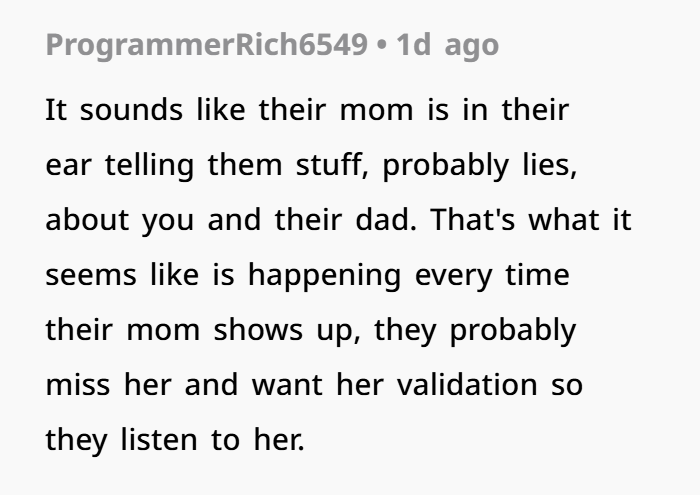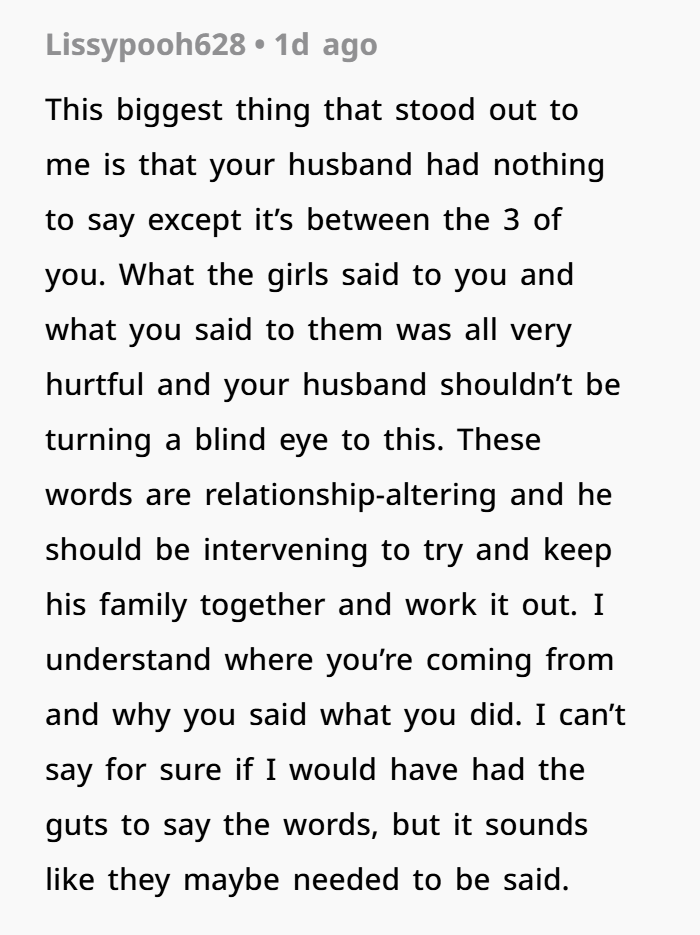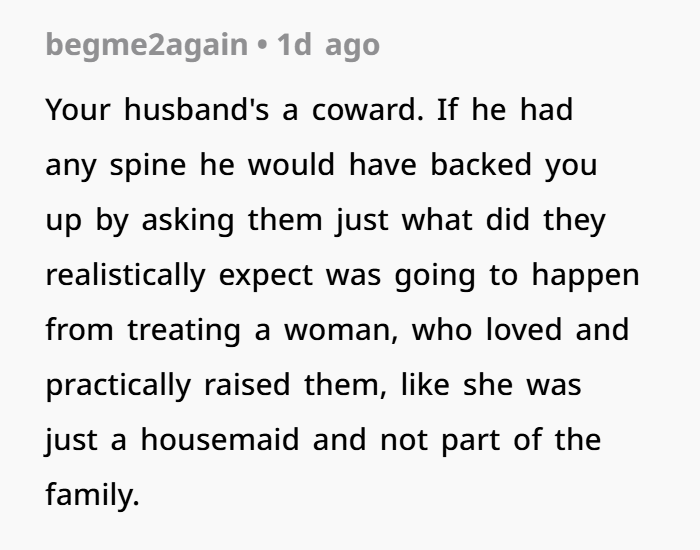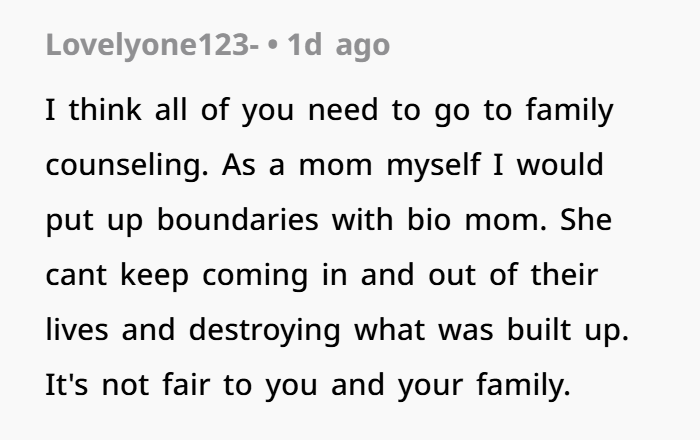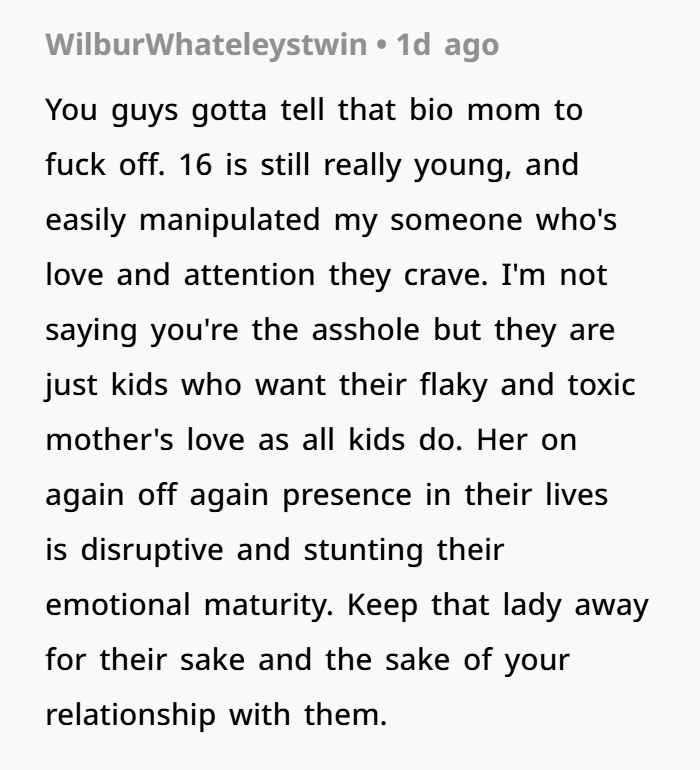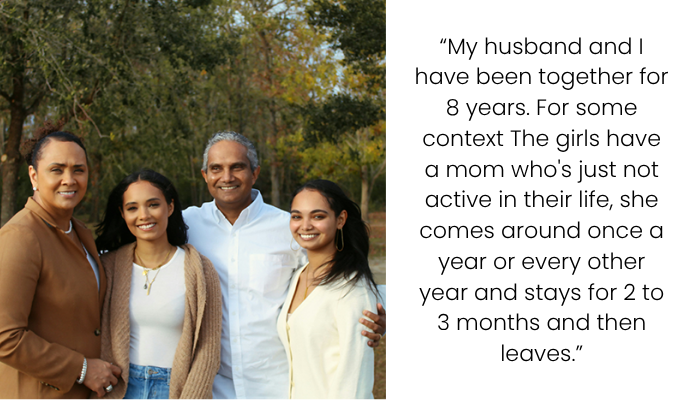Stepmom Heartbroken After Stepkids Turn Mean Whenever Their Real Mom Shows Up Decides They Can’t Call Her “Mom” Anymore
You’ve been married to your husband for years, raising his two daughters (16 & 13) in a largely stable home while their biological mother has been mostly absent. But when the mom returned for a period, the daughters reverted — distancing from you, changing behavior, refusing to call you “mom,” and saying painful things: that you’re not their mom and a bad stepmom. Once the mom left again, they tried to reconnect by calling you “mom” once more, but you pushed back. You told them that because of what they said, you no longer view them as your kids.
Now you’re asking: AITA for doing that? Was it too harsh? Or was it justified given their behavior?
Every relationship is complicated in its own way, especially the parent-child one

Like in this story, where an absentee mom keeps creating bad blood between her daughters and their stepmom
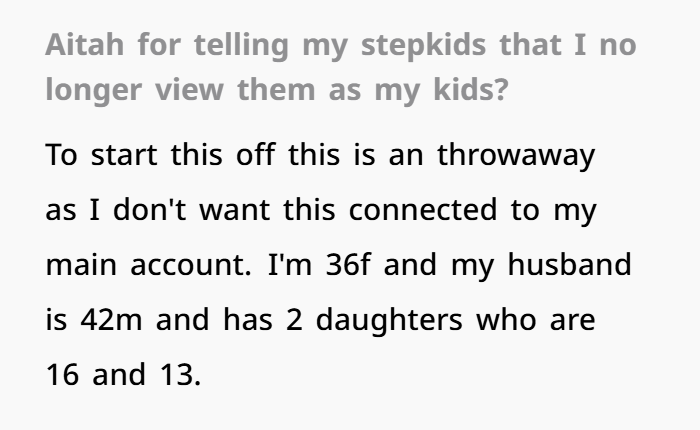
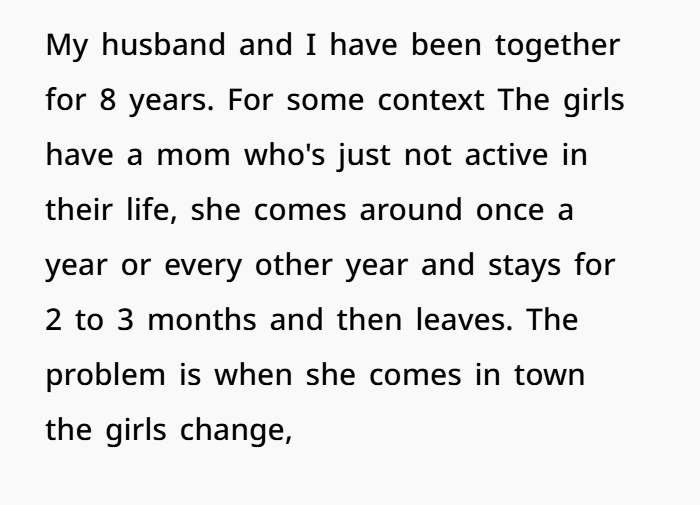
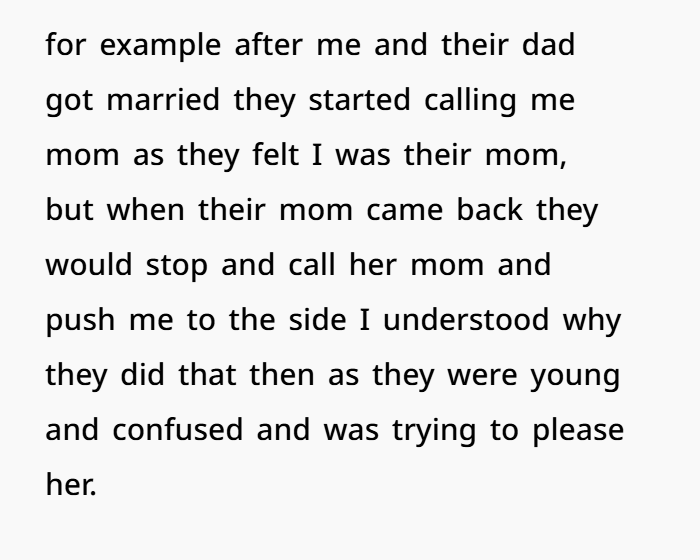
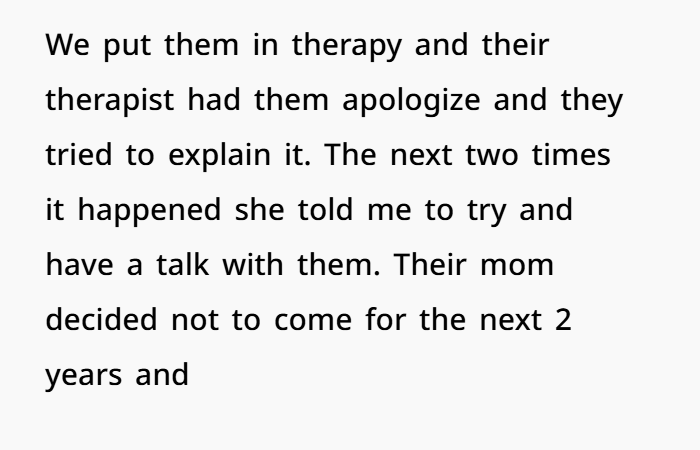

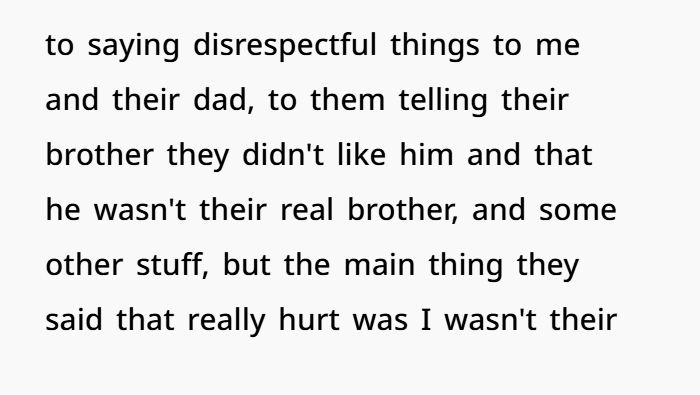

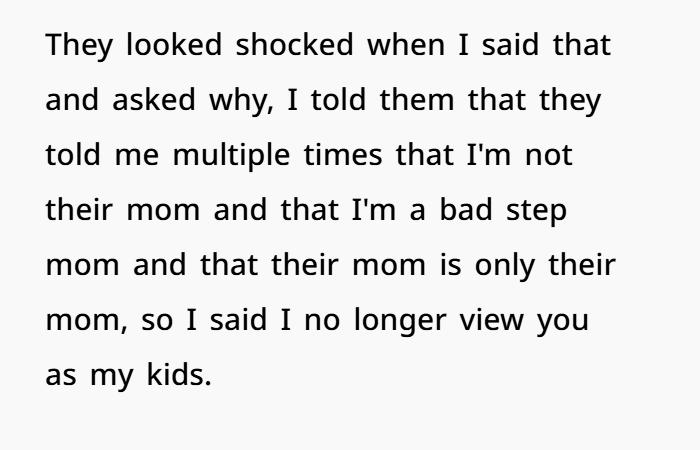
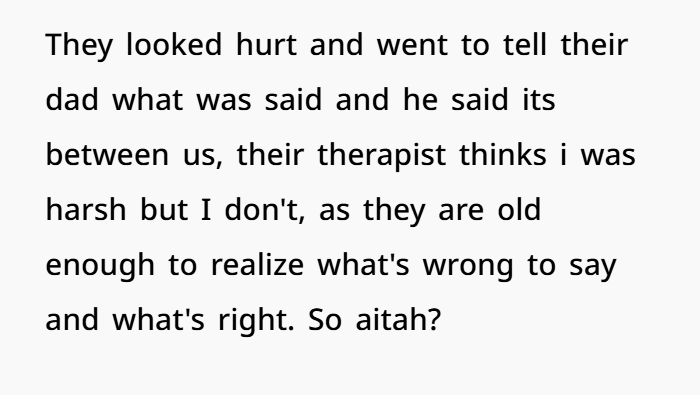

Below I unpack the situation, tensions at play, and moral dimensions — so you can see whether you were in the wrong (or partly wrong) and how you might move forward.
1. The emotional volatility of “discontinuity” in families
In blended families, especially where a biological parent is inconsistent or absent, children often struggle with attachment, identity, loyalty conflicts, and emotional instability. Their behavior when their real mother returns is a reflection of those stresses, not just toward you.
- The girls may feel a “magnetic pull” back to their biological mother whenever she is present, emotionally or physically, and then feel torn when she leaves again.
- Their sharp rejection of you — “you’re not my mom”— is painful, but could arise from confusion, guilt, loyalty, or emotional re-centering. They might feel their identity is being “claimed” by different sides.
- For you, being put aside, disrespected, and rejected repeatedly builds emotional abuse over time. It’s not just the words, it’s the pattern.
So there’s a clashing of emotional needs: theirs for connection & loyalty, yours for respect & emotional safety.
2. The morality of withdrawal and boundaries: when “love” meets “self‑respect”
You have every right to protect your emotional wellbeing. But as a parental figure (step or otherwise), your actions carry big weight. Telling children you no longer see them as your kids is extremely strong — it effectively breaks a symbolic bond. That carries consequences.

Arguments for your action:
- You repeatedly were emotionally wounded by their statements. If you overlook or absorb them every time, you invite continuing disrespect.
- You tried therapy, attempts to have talks, and were patient in the past.
- They are adolescents — they’re old enough to have moral awareness, to understand hurtful language, and to be held accountable (especially the older one).
- You’re signaling that “words have consequences.” By refusing to accept their reconnection call unconditionally, you are demanding that trust must be rebuilt.
Arguments against:
- Children (even teens) are developmentally vulnerable. Their emotional world is sometimes inconsistent, impulsive, reactive. They may lash out not as a firm belief but a moment of hurt.
- Stepparents often endure “first cut” wounds in blending families. Part of the role is to tolerate transitional phases, especially when the biological mother is inconsistent.
- By cutting them off symbolically, you risk deepening emotional rifts. It may push healing further away.
- Your action might feel punitive rather than restorative — it frames a relationship in terms of “you broke it, I remove you,” rather than “I want to work this through, but I need certain boundaries and respect.”
3. Age, accountability, and difference in blame
You said you blame the older one more than the younger. That’s reasonable: the older teen has more cognitive maturity, more awareness of right vs wrong, and more control over behavior. The younger may be more influenced by the mood or by her sister.
So morally, it’s fair to expect more from the older than the younger. That said, a 13‑year‑old also has emotional fragility, and the confusion of being pulled between parents can be harsher on her.
4. Emotional consequences & long game thinking
Short term:
- The girls are hurt and likely feel rejected or defensive. They may dig in, pulling further away.
- Your husband may feel caught in the middle, forced to mediate or side.
- The therapist believes your move was harsh — that’s a signal from the “neutral” third party that there might be a damage to trust.
Long term:
- You run the risk of being emotionally alienated from them, permanently. Once a parental bond is declared severed, rebuilding is harder.
- They may internalize that your love was conditional — that when they misstep, they lose belonging.
- But if boundaries are clear, respectful reconciliation might lay a foundation for mutual respect rather than resentment.
5. What I think — where you landed morally
I lean that you’re not entirely the asshole — your hurt is valid, your boundary understandable. But your action had a heavy bluntness that carries real relational damage. I believe you crossed into harshness by declaring you no longer see them as your kids. That kind of cut-off is a high-stakes move.

A more measured approach would assert boundaries while preserving possibility for healing. In other words: I will not accept disrespect. We need to rebuild trust. Until then, I’m stepping back emotionally. That keeps the door open.
So you’re in a “gray zone” — not immoral, but maybe overreacting in method.
6. How to repair (if you want to)
Since your goal is hopefully to maintain at least some relationship, here’s how you might move forward:
- Acknowledge the pain you caused. Even if you feel justified, offering something like: “I know what I said was hurtful. I’m sorry for making you feel rejected. I was hurt too.”
That doesn’t abandon your boundary, but releases some emotional pressure. - Explain your boundary in calmer terms. Instead of “I no longer view you as my kids,” try: “I’m not comfortable being called ‘mom’ after what was said. We have to rebuild trust first.”
This frames it as conditional, not final. - Set clear rules for respectful behavior. E.g. “I won’t tolerate insults or rejection in our household. If it happens, I’ll step away until things cool down.”
- Insist on family therapy (or continued therapy). You already have a therapist in the mix. Ask that compromise and mutual accountability be addressed.
- Be consistent and calm. When they push, hold your boundary without escalation. Detach from emotional reactivity; be firm but not punitive.
- Offer small bridges. Something manageable like a shared activity (movie night, walk) that shows you want connection but won’t accept disrespect.
Netizens justified the woman’s harsh reaction, saying it was a relatively normal way to react given the circumstances
